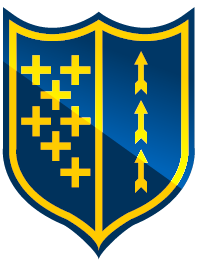Computing
"He has given them skill to do all kinds of work, both the skill of those who make things and of those who design them"
Computing Rationale
Intent
With technology playing such a significant role in society today, we believe ‘Computational Thinking’ (problem solving, analysing and evaluating) is an imperative skill children must be taught if children are to be able to participate effectively and safely in our technology driven world.
At St Sebastian’s, we encourage children to use their computational thinking to solve real and relevant problems within a variety of contexts, considering their own and others’ needs, wants and values. By providing a well-rounded computing curriculum, we aim to nurture digital literacy, resilience, and a passion for technology among our young learners. We also aim to, wherever possible, ensure that our Computing curriculum is fully integrated throughout other areas of our schools curriculum and effectively modelled by competent and knowledgeable staff. This enables children to become effective users of technology who understand and apply the essential principles and concepts of Computer Science and communicate ideas well by utilising technology and devices throughout all areas of the curriculum.
Our school adopts trauma and attachment-informed practices to create a safe and supportive environment for all pupils. Inclusivity is at the heart of teaching strategies, ensuring that every child's individual needs are met. Adaptive teaching strategies are employed to cater to diverse learning styles and abilities, allowing all pupils to access and progress in history.
As an inclusive school, our curriculum is designed to offer an engaging, relevant, and stimulating learning experience for all, covering a wide range of topics aligned with the Computing National Curriculum.
Implementation
At St Sebastian’s, children experience six half-terms of computing each year, providing sufficient time to develop fluency in their knowledge and skills while embedding and revisiting prior learning throughout the year. Our computing curriculum, delivered in Years 1 – 6 by teaching staff alongside an MGL specialist teacher, encourages children to work independently and collaboratively to solve, analyse, and evaluate problems. By working collaboratively with a specialist computing teacher, we are able to ensure that lessons are engaging, up-to-date and aligned to a broad, balanced and progressive curriculum. Key knowledge and skills have been carefully mapped across the school, from EYFS to Year 6, to ensure clear progression between year groups. Through this curriculum, pupils are introduced to a range of software applications, coding languages, online platforms and e-safety learning, enabling them to develop a strong foundation in digital skills from an early age. In EYFS, computing continues through the children’s provision, giving them opportunities to explore and interact with technology in developmentally appropriate ways.
Moreover, Computing at St. Sebastian's is not just about acquiring technical skills; it also emphasises the ethical and responsible use of technology. Through discussions and activities on online safety, cybersecurity, and digital citizenship, we strive to instil in our pupils a sense of digital intelligence and awareness. By promoting a culture of respect and responsibility in the digital realm, we equip our students with the tools to navigate the online world safely and ethically.
Our computing curriculum is structured to cover key concepts within computer science such as programming, data handling, and computer networks. Through hands-on activities, projects, and collaborative tasks, students at St. Sebastian's engage with real-world problems and challenges that develop their analytical thinking and problem-solving abilities. By integrating computing with other subjects such as mathematics, science, and design & technology, we provide cross-curricular opportunities for students to apply their computing knowledge in diverse contexts.
In addition to this, British Values are consistently taught through Computing by promoting tolerance, cultural diversity and in turn mutual respect. We link this to pupils’ behaviour online and how mutual respect and tolerance is applicable to the online world as well as in society. Respect is key to ensure that our children know that their actions online can affect the feelings of others. Responsibility and accountability of our children to develop the enthusiasm to become users and programmers of information and communication technology for positive purposes.
Assessment
An integral part of computing is using the children’s ability to develop digital content in a creative way. Programs are created on digital devices and as such are not recorded in the same way as written learning. Learning may be recorded in many ways including but not limited to: printed screenshots of creations, saved programs, Power Points, word documents, written work, photographs and video recordings. The ‘process’ undertaken to arrive at the finished product, algorithm or program is as important as the finished product and this will be taken into account. Feedback is given verbally to children in order to support them to progress within and across lessons. Children recall their knowledge periodically throughout the year to ensure gaps in revisited knowledge are addressed immediately.
Impact
After the implementation of the computing curriculum at St Sebastian’s, children at our school will:
- Be digitally literate and able to access the digital world in which we live
- Be equipped with the skills and knowledge to use technology effectively and for their own purpose, but more importantly in a safe manner.
- Understand the consequences of using the Internet
- Be aware of how to keep themselves safe online.
